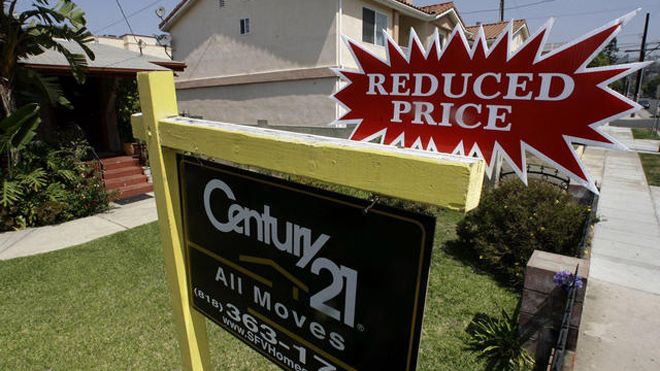With the country still reeling from the aftermath of the housing crisis and the economy in a slow recovery, the federal government’s consumer watchdog group introduced a new set of rules Thursday in an attempt to rebuild a shaky housing market and to protect homeowners from defaulting on loans.
The Consumer Financial Protection Bureau’s (CFPB) new rules could help Latinos homeowners who have been some of those hardest hit by the housing crisis of the past few years and the goal of the Bureau’s new rule is to protect consumers from risky practices that helped cause the crisis., said Moira Vahey, a spokesperson for the CFPB.
“The goal is to make sure people can make payments on their loans,” Vahey said. “It’s like a guardrail for the mortgage industry.”
- SUMMARY
The facets of the Ability-to-Repay rule include having all potential homeowners provide financial information for lenders verification and to qualify for a loan the borrowers just hold sufficient assets to pay back the loan. Along with these two regulations, the rule holds lenders accountable for the consumer’s ability to repay both the principal and interest over the longer – not just during the lower introductory period.
The keystone of the bureau’s new regulations is the Ability-to-Repay rule, which hopes to guarantee that lenders only offer mortgages that consumers can afford. A main cause of the housing market crash, experts say, was the reckless lending to homeowners regardless of their ability to afford the loans.
“Having the important Ability-to-Repay rule in place – indeed, having all of the mortgage rules in place and on sound footing – is an essential foundation for our much-needed recovery in mortgage lending,” CFPB Director Richard Cordray said early Thursday. “We believe this rule does exactly what it is supposed to do: It protects consumers and helps strengthen the housing market by rooting out reckless and unsustainable lending, while enabling safer lending.”
The Ability-to-Repay rule requires having all potential homeowners provide financial information for lender’s verification. To qualify for a loan, borrowers must hold sufficient assets to pay it back.
Along with these two regulations, the rule holds lenders accountable for the consumer’s ability to repay both the principal and interest over the long run – not just during the lower introductory period.
The National Council of La Raza (NCLR) cautiously praised the CFPB’s new rules, saying that while the bureau’s announcement did not reflect all of the organization’s recommendations, it did craft a better definition of a Qualified Mortgage and makes sure that Latinos are better protected from predatory lenders.
The CFPB defined Qualified Mortgages as a category of loans where borrowers cannot have certain chancy features such as negative-amortization, where the amount owed increases for some period due to the borrower not paying the interest and the unpaid interest getting added to the amount borrowed.
During last year’s U.S. presidential campaign, the NCLR and other advocacy groups asked both candidates to stop needless foreclosures, expand affordable rental housing and revive a sustainable path to homeownership.
“Greater numbers of Latinos will become first time homeowners in the years to come, helping both the economic mobility of their families and the prosperity of our nation as a whole,” said Janet Murguía, President and CEO of NCLR. “We commend CFPB for adopting a broad definition of a Qualified Mortgage, which will foster an inclusive housing market for Hispanic families just starting out. The rule will require lenders to be sure borrowers can afford their loans, a commonsense protection that will benefit the entire market.”
Loans that would fall under the QM banner would be any home loan purchased by Fannie Mae and Freddie Mac along with mortgages insured by the Federal Housing Administration, the U.S. Department of Veterans Affairs and the U.S. Department of Agriculture.
Some mortgage brokers, however, don’t see the rules positively affecting Latinos anymore than they do any other consumer in the U.S. Unless they are undocumented and thus don’t qualify for loans, Latinos are judged on the same standard as anyone else when it comes to getting a mortgage, said John Younes, the owner of Preferred Mortgage Lenders in Davie, Fla.
“I don’t see any difference if you’re white black, brown, green or yellow.” Younes said. “If you don’t qualify for a loan, you don’t get it.” by Andrew O’Reilly [Fox]


